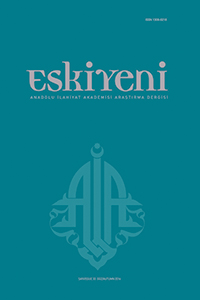İki Şehrin Hikayesi: el-Medînetü’l-Münevvere ve el-Medînetü’l-Fazıla
The Story of Two Cities: The Enlightened City (al-Medîna al-Munavvara) and The Virtuous City (al-Medîna al-Fâdıla)
Author(s): İsmail HanoğluSubject(s): Philosophy, Social Sciences, Theology and Religion, Islam studies
Published by: Anadolu İlahiyat Akademisi
Keywords: Religion; city; civilization; prophet and philosopher;
Summary/Abstract: The two different models of city are investigated in the context of their structural features in the political thought in this study. One of the two cities, al-Medîna al-Munavvara, has practical characteristics and the other, al-Medîna al-Fâdıla, has theo- rical ones. While the transformative effects of their political powers are elaborated in the study, the different approaches on the quality of the relationship between the philosophy* Doç. Dr., Çankırı Karatekin Üniversitesi Edebiyat Fakültesi, ismailhan78@gmail.comEskiyeni 33/Güz 2016, 27-49 and the religion are discussed. The Enlightened City, al-Madîna al-Munavvara, that is the city of Prophet, emerges as the city-state in the Islamic political history. The existence of the significant examples on the essence of socialization in the structure of this state is fairly new for the history of mankind. In this study, while the meaning in the political and social praxis of the concept of religion is scrutinized, the semantical and terminological contents of the concepts of ad-din (religion), al-medîna (the city) and al-madaniyya (civilization) are mentioned. The Madina of Ebu Nasr al-Fârâbî, the Philosopher, offers the order of theorical city-state, not practical one. The epistemological basis of this city-state holds on the God. Al-Fârâbî exalts the philosophy and the philosopher in his texts and he evaluates the philosopher in the same degree with the Prophet, ontologically and epistemologically.
Journal: Eskiyeni
- Issue Year: 2016
- Issue No: 33
- Page Range: 27-49
- Page Count: 23
- Language: Turkish

